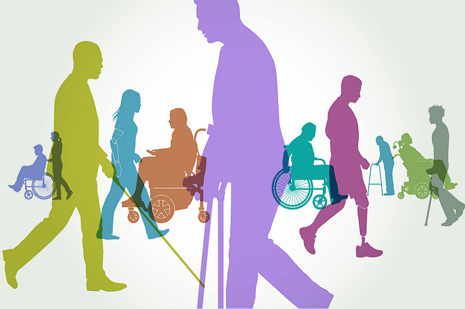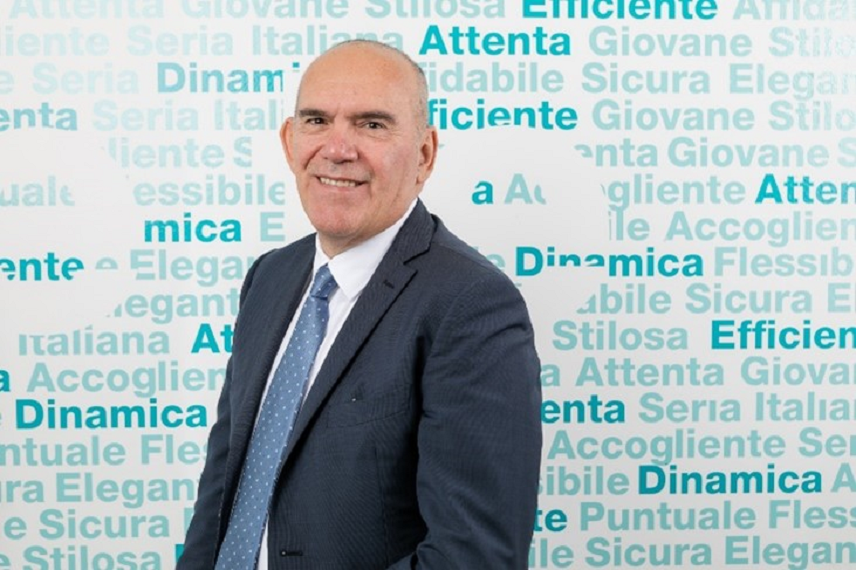
Flying should not be a privilege of a few but a traveling experience that everyone can enjoy. People with Disabilities (PwD) must not represent an exception. Can Italy’s commendable efforts to promote accessibility inspire others? An interview with Captain Alberto Casamatti, Director General Operations & Accountable Manager at Air Dolomiti, and figurehead of accessibility in Italian aviation.

Thank you for this opportunity to share some thoughts about this very important and delicate subject. Over the years, the air transport community has developed a system aiming to provide easier access to flights for PwD. Despite significant advances, there is still room for improvement.
Unfortunately, until now, the approach has been largely unilateral and lacking coordination between involved parties. Airports and airlines have, for example, been pursuing the same objectives, but with little regard to each other’s needs.
To create a safer and more dignified travel experience for PwD, airlines and airports should embrace a “team approach”, focusing on common problems and finding common (and sensible) solutions.
Implementing this new type of approach implies facing many different challenges, including requiring a broader vision and understanding of the problems.
A new type of mentality and willingness to cooperate and to understand each other’s necessities will be crucial to achieve success.
In Italy we are trying to pursue this new approach at a wider scale. We managed to organize a very specific and dedicated workshop with all the parties involved:
· IATA
· The Italian aviation authority (ENAC)
· The major Italian airlines
· The major Italian airports
· Tour operators and travel agencies
· A large number of Italian associations of people with various types of disabilities.
Under the strong patronage of the Italian Ministry for Disabilities and ENAC, for the first time ever, we sat together to talk about our difficulties and challenges. This enabled everyone to obtain a much wider and better understanding of the issues. The workshop also led to some very practical and useful ideas such as the creation of a technical committee coordinated by ENAC, which meets regularly and comes up with new ideas to provide a better service. Simultaneously, it aims to simplify operations, providing a safer and more seamless flying experience for PwD.
We were also able to get the three major Italian airlines to promote and activate a shared website icon and wording for any passenger with disabilities willing to book a flight and in need of assistance as part of the ‘ONE CLICK AWAY’ project. In doing so, every passenger needing assistance will now find the same symbols and wording, making the booking experience simpler for the passengers themselves, the airline, as well as the airports. This is what I mean when I speak about the “team approach”.
Other ideas have been and are being explored, but the key will always be to:
· talk to each other
· listen to each other
· identify the problems
· find a quick and lean solution to shared problems.
· I I strongly recommend and hope that other countries will adopt this new approach. They will likely be surprised to find out how important the willingness is to cooperate and to work together. All the stars are aligned for things to work out. It is for a just and rightful cause, something everybody feels.
Training is crucial in addressing such an important priority. It is not just about learning the procedures to comply with the regulations. The employee hired to handle PwD needs a special training to provide a safe and dignified flying experience to every kind of passenger with specific needs of care and attention.
We can address this by developing a joint and common training and education to all personnel involved, allowing more resources for this specific topic. Too often, the personnel dedicated to this type of service does not give the required attention to the very specific psychological needs of the passenger. This must change! Training, education, and resources are the perfect way to achieve this.
At present, the area which requires the most improvement is undoubtedly the training of all the people involved*. I hope that in the future this “team approach” will become widespread and serve as the common approach throughout the industry, allowing substantial improvement in the services. I also expect that any new airport will be developed keeping in mind all the new technical solutions applicable to make life easier for PwD, and that manufacturers will take into account those needs when designing new aircraft.
It is important to stress that making flying a simple and dignified experience to PwD also makes sense from a business perspective. There are millions of people with different kinds of disabilities in the world, and the majority cannot travel alone. Making the flying experience easy and comfortable for them, will enable to sell many more tickets.
*IATA is part of the INCLAVI (INCLusive AVIation) project, which began in September 2022 and addresses the skills mismatches in the aviation sector related to the freedom of movement of persons with disabilities and accessibility requirements in line with the EC Strategy for the Rights of Persons with Disabilities 2021-2030. The project is co-funded by European Union Erasmus+ programme.
Additional Information:
·
·